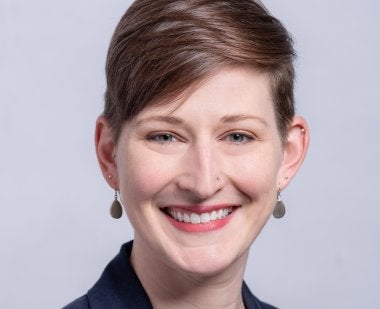
Faculty Q&A with Research Professor Rachel Romeo
Rachel Romeo is a developmental cognitive neuroscientist and licensed speech-language pathologist broadly interested in how children’s early experiences influence their neural, cognitive, and academic development. She directs the Language, Experience, and Development (LEAD) lab where she employs interdisciplinary methods from developmental psychology, cognitive neuroscience, and direct educational interventions to study how young brains adapt to assorted environments and lead to unique developmental paths.
What does your research focus on?
I look at how early environments in a child's life affect brain development and cognitive education skills. I utilize several forms of neural imaging, from functional magnetic resonance imaging (fMRI) to Electroencephalography (EEG), which analyzes blood flow and shows brain developments under certain psychological states.
What made you interested in your field of work?
I used to be a speech-language pathologist and continued to grow my interest in researching the effects of early experiences on younger brains. I wanted to see how and children's early development correlated with academic and neural development.
Is education equity a motivator behind your research?
Education equity is the whole purpose of my research interest. I have worked with kids experiencing disadvantages and advantages in their upbringing that heavily affect their cognitive development. I'm basically trying to look under the hood to see how those factors affect overall development. This research will hopefully show that teaching should be constructed around the brain that is presented right in front of us. Education needs to be better tailored to brains significantly affected by early experiences and environments.
What is the most common difficulty when conducting research?
Little kids don't always do what is asked of them. Neuroimaging involves an individual lying down very still, something that little kids have a hard time doing. I have to tailor my research and research methods to the children we work with. You have to make it like a game, something fun and engaging. It takes more effort to research children rather than an adult. It truly is an art.
Is the work accomplished in your field rewarding?
It is hard to beat research because it is my passion. Nothing is more rewarding than sitting with a child and seeing the effects of the treatment and research on their life. Seeing the progress unfold is remarkable.



